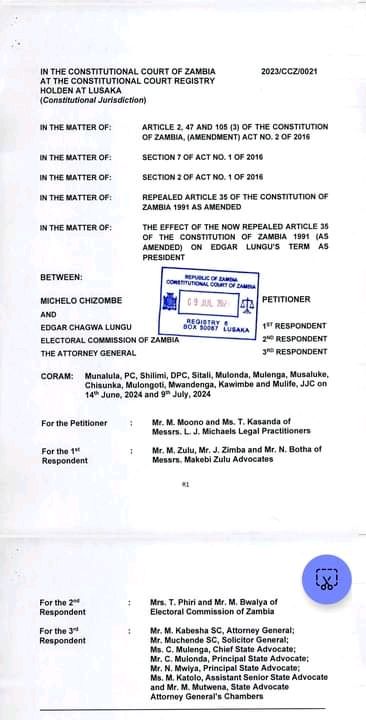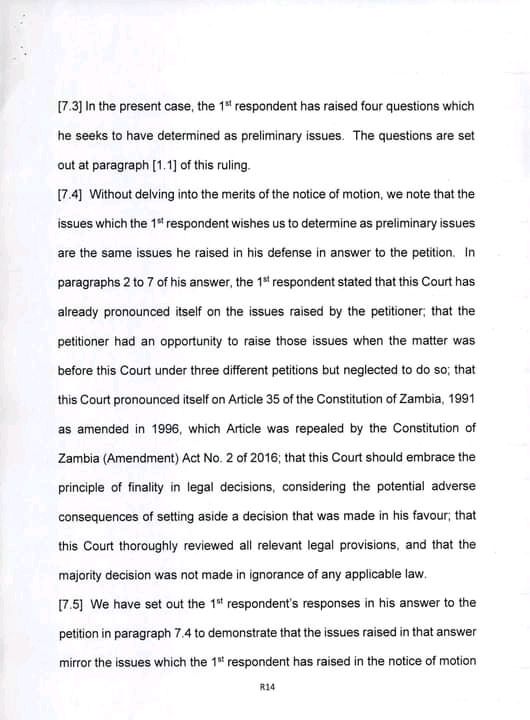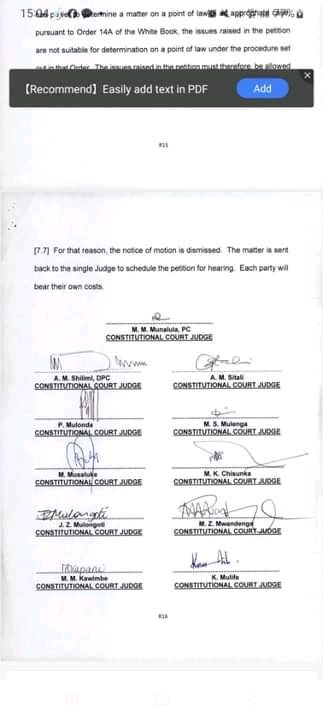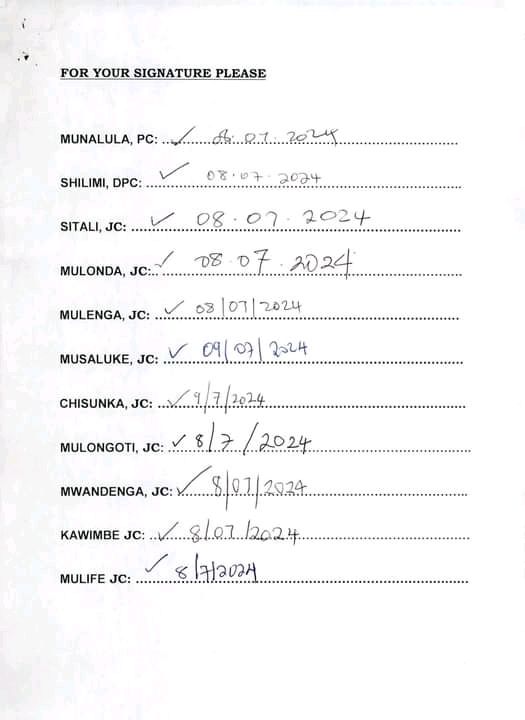The Ruling in the matter of the Eligibility Case
[7.3] In the present case, the 1st respondent has raised four questions which he seeks to have determined as preliminary issues. The questions are set out at paragraph [1.1] of this ruling.
[7.4] Without delving into the merits of the notice of motion, we note that the issues which the 1st respondent wishes us to determine as preliminary issues are the same issues he raised in his defense in answer to the petition.
In paragraphs 2 to 7 of his answer, the 1s respondent stated that this Court has
already pronounced itself on the issues raised by the petitioner; that the petitioner had an opportunity to raise those issues when the matter was before this Court under three different petitions but neglected to do so; that
this Court pronounced itself on Article 35 of the Constitution of Zambia, 1991 as amended in 1996, which Article was repealed by the Constitution of Zambia (Amendment) Act No. 2 of 2016; that this Court should embrace the
principle of finality in legal decisions, considering the potential adverse consequences of setting aside a decision that was made in his favour; that this Court thoroughly reviewed all relevant legal provisions, and that the majority decision was not made in ignorance of any applicable law.
[7.5] We have set out the 1st respondent’s responses in his answer to the petition in paragraph 7.4 to demonstrate that the issues raised in that answer mirror the issues which the 1st respondent has raised in the notice of motion for our determination as preliminary issues under Order 14(A) of the White
Book. While the Court has power, at any stage of the proceedings, to determine any question of law arising in a cause or matter, the Court may only do so if it is satisfied that such question is suitable for determination
under the procedure provided for in Order 14(A) of the White Book without a full trial of the action.
The Court will not do so where the questions of law to be determined are highly contested and are more suited for determination at
trial. In other words, the decision whether or not the Court will determine a cause or matter on a point of law under the summary procedure provided for in Order 14A of the White Book is informed by the nature of the question or action in issue.
[7.6] Given the contending positions taken by the parties in this case, both in the main matter and the notice of motion, our view is that while this Court has power to determine a matter on a point of law in an appropriate case, pursuant to Order 14A of the White Book, the issues raised in the petition are not suitable for determination on a point of law under the procedure set out in that Order.
The issues raised in the petition must therefore, be allowed to be addressed on the merits at a trial.
R15





Starting the case from it’s beggining will give a clear picture of what should happen now.not under duress